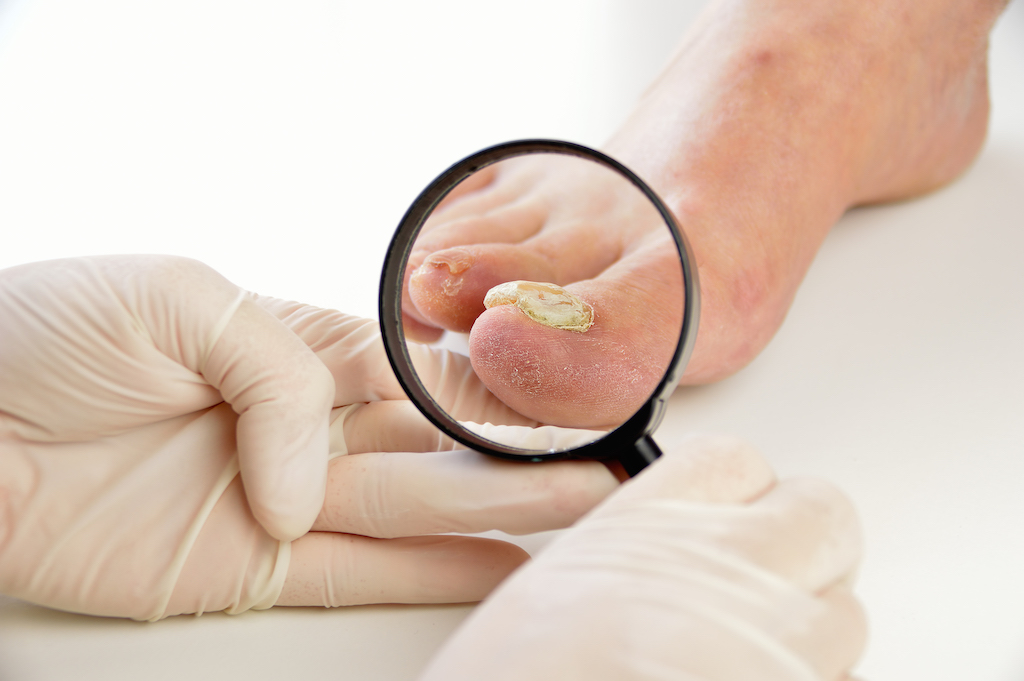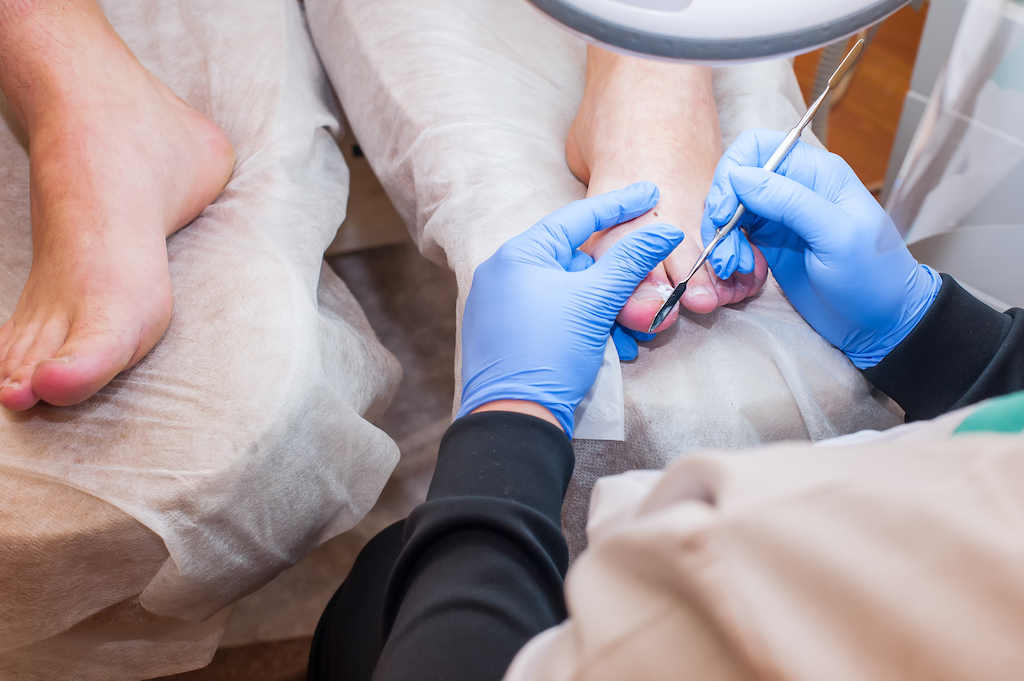Wanting to wear a pair of sandals or thongs but too embarrassed because of the unsightly toenail fungal growth that seems to be getting worse?
You’ve tried over-the-counter pharmaceuticals but the fungus still persists? Worried that it will contaminate and spread to your other toes or persist for years? Concerned about the known side effects the oral anti-fungal medication may have on your liver?
Our Podiatrist Dr. Ella Wright has treated many fungal nails with great success. The earlier the diagnosis the better the success rate as most fungal infections are very persistent and reoccurrence is high. One of the main problems with over-the-counter anti-fungal topical ointments is the poor nail penetration ability of these ointments. A simple solution is to have the nail shaved down by a qualified Podiatrist first, so the ointment can reach deeper into the nail killing the fungus.
The anti-fungal topical ointments are only effective if they can reach the fungus deep into the nail. The longer you leave a toenail fungal infection the harder it is to treat so the sooner you have the nail shaved and the right topical anti-fungal ointment applied, the better!
How to Prevent Fungal Re-infection
- Iron all your socks as the fungus and fungal spores cannot withstand such high temperatures.
- Either discard infected shoes or treat them with anti-fungal powders regularly.
- Avoid synthetic shoes choosing more natural materials that have a greater ability to breathe.
- If you have sweaty feet change your socks regularly throughout the day.
- Avoid walking barefooted in communal wet/damp areas such as pools, spas, and shower rooms.
- Before attending any nail salon, check their sterilisation protocols. If they have difficulty explaining how they sterilise their equipment, assume their protocols are either poor or non-existent.
- Disinfect your nail clippers and nail files after each use.
- Avoid any cosmetic application that may potentially weaken the integrity of the nail making it more susceptible to fungal invasion. This includes nail polish, nail polish remover, and artificial nails.
- Wash your hands and feet regularly.
What Factors Increase Your Chances Of Nail Fungal Infections?
- The poorer the blood supply the higher the risk factor which is why we commonly see fungal infections in Diabetics.
- Any medical condition that compromises your immune system (eg auto-immune diseases).
- Ageing, as our nails grow slower combined with more years of fungal exposure.
- Exposing our feet regularly to damp/sweaty environments.
- Having a history of athlete’s foot.
- Having a minor skin or nail injury potentially increasing our exposure to fungal infections.



